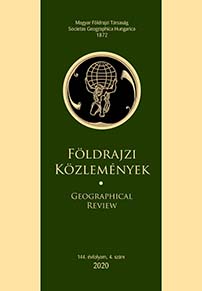Variációk egy témára: Hunfalvy, Lóczy és Czirbusz földrajz-felfogásának nemzetközi kapcsolódásai
Absztrakt
This paper investigates the changing interpretation of geography as a scientific discipline by the first three department heads of geography at the university in Pest/Budapest between 1870 and 1920. I scrutinize the stories of János Hunfalvy, Lajos Lóczy and Géza Czirbusz, in their embeddedness to contemporary international scholarly debates on the content, goal and task of geography. Based on this, I develop the following arguments: (1) Academic views of geography were especially diverse in the second half of the 19th century, the early phase of the discipline’s institutionalization, due to the largely different educational and scholarly background of newly become geographers. (2) Despite this diversity, geographers coming from history and social research (e.g. Ritter in Germany and Hunfalvy and Czirbusz in Hungary) mainly interpreted geography as a discipline joining physical and social sciences together by investigating the impact of geographical factors on human history. Geographers with a background in geology, however (e.g. von Richthofen in Germany, Davis in the U.S. and Lóczy in Hungary), mainly regarded geography as physical geography and a full-fledged physical science. (3) Varying approaches to geography at the department in Pest/Budapest were closely following up mainstream international debates, for all three department heads had state-of-the-art knowledge on foreign academic discourses in geography.
Copyright (c) 2021 Ferenc Gyuris

This work is licensed under a Creative Commons Attribution-NonCommercial-NoDerivatives 4.0 International License.



